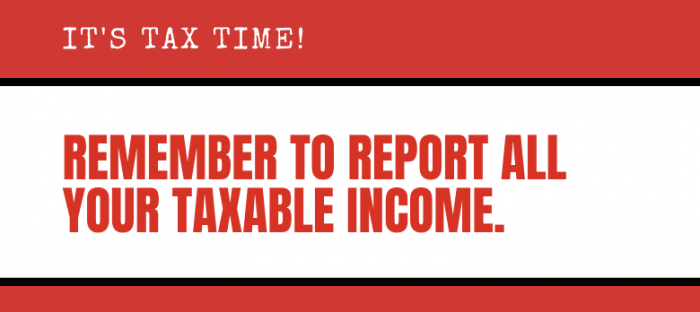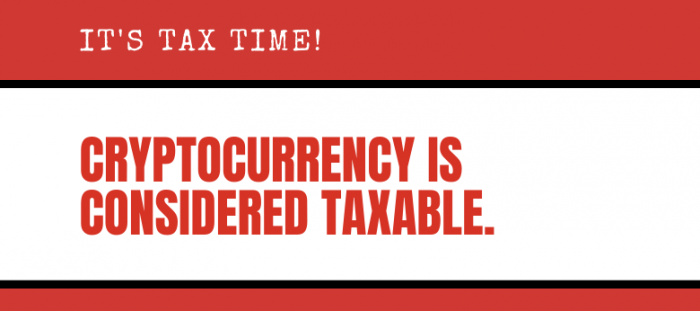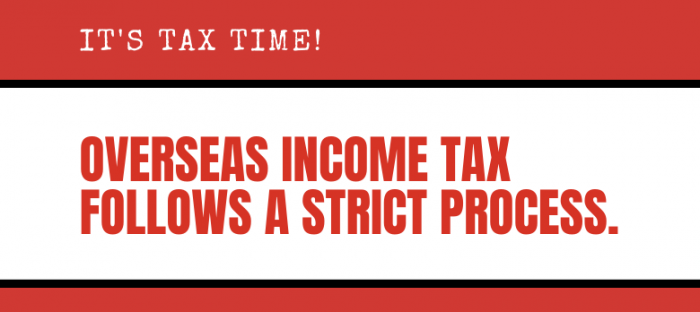Taxes. You can’t live with them, and you can’t live without them.
While most of us would rather avoid having to deal with the IRS, it’s not possible to evade it altogether unless you want to spend your life behind bars.
The good news is that the IRS, while still a fallible human organization, isn’t actually trying to make your life worse (even though it might seem that way sometimes).
By following a few simple rules, you can look forward to filing your US tax return with only mild annoyance instead of nursing a knot of fear in your stomach.
There are, however, some red flags that the IRS looks out for, and if you’re not careful, you may just be on the receiving end of the dreaded tax audit.
While being audited is quite rare (only about 1% of yearly income tax returns are subjected to an investigation), here are 5 moves that drastically increase your chances of getting a visit from the taxman.
Horror Story 1: Failing to report all sources of income.
Most people now have second jobs in order to supplement their main profession.
Dog walking, freelancing, giving private tutorials, selling stuff online, ridesharing, and other home businesses are only some of the ways of earning money on the side — money that’s unfortunately taxable.
You may think you can get away scot-free, but the IRS is able to track down unpaid taxes by matching forms from independent contractors with your own tax return. If they spot a mismatch, prepare for an audit.
In fact, a recent survey indicates that approximately 25% of Americans have a second job but fail to report it. This amounts to a whopping $214 billion worth of taxable income that slides under the radar.
While no babysitters have yet been charged with evasion, a soccer team manager was once fined more than $300,000 for hiring independent contractors as referees, which the IRS insisted should have been included in their employee tax return.
Horror Story 2: Gambling wins and woes.
Huge jackpots from the local casino or the state lottery system might seem like a dream come true, but it can turn into a nightmare if you’re not careful with your taxes.
Every penny earned through gambling has to be declared. Professional poker players in particular are stringently required to keep count of their total winnings and losses.
The IRS will crosscheck the casinos’ books with your tax return, earning you an audit if you don’t file the proper forms. Your gambling losses can offset your payments, but only to the extent that it matches your filing winnings.
In 2013, a frequent casino bettor named James Boneparte decided to reduce his total taxes by claiming the title of “professional gambler.”
The IRS would have none of this after they found out that James wasn’t gambling for profit and that his losses exceeded his wagers.
Horror Story 3: Cryptocurrency and virtual money.
The future of money seems to be digital, but this also means that the future of taxable income is digital, and the IRS isn’t wasting any time running after delinquents.
In recent decades, the rise of Bitcoin and other virtual cash has provided another source of headache for those engaged in these trading outlets, so much so that the IRS has provided a handy guide for people wanting to file taxes involving cryptocurrencies.
It’s easy to just trade online and forget about the taxman, but be warned that the IRS has begun to clamp down on people who have online crypto accounts. Excuses such as “cryptocurrencies have no intrinsic value” doesn’t fly, since it is still considered owned property.
In 2019, the IRS sent out at least 10,000 letters to cryptocurrency owners who failed to report their virtual earnings in their income tax return.
Try not to get one of these in the mail.
Horror Story 4: Income earned overseas.
Expats who work in a foreign country can file a tax break for up to $105,900 of their income earned overseas, but certain restrictions apply to these.
For instance, the expat must be a resident of that foreign nation while they were working, or they should have been living outside the U.S. for at least 330 days in a span of twelve months.
Most people have no idea how this works, and just because you earned some money abroad doesn’t mean that you don’t have to pay taxes on that amount.
In fact, this is a very common dispute that shows up in tax litigations.
The IRS has even begun strong-arming foreign banks, forcing them to disclose their financial records.
To this day, many foreign banks such as in Switzerland simply refuse to do business with American customers, citing “regulatory issues” when in reality they are simply miffed at the IRS.
If you want to avoid this kind of stigma abroad, it’s absolutely essential that you work within the parameters of the tax law.
Horror Story 5: Nothing that you did wrong.
Sometimes, lady luck just frowns down on some of us. The IRS, no matter how powerful it is as an institution, is manned by people, and people make mistakes.
There have been a lot of cases where the taxpayer has done nothing wrong, but then gets harassed by agents who show up at his door, write vaguely threatening letters, or even outright seize assets.
A beauty salon owner was once faulted for unpaid taxes. The IRS proceeded to confiscate all of her equipment and later publicly sold it to make up for the dues.
After some investigation, it turned out that the salon owner wasn’t at fault. Even though all the equipment was eventually returned, the loss of business plus the embarrassing hit to her reputation were never really rectified.
This kind of mishap rarely happens, but when it does, there’s frankly very little that you can do to stop it. Thankfully, the IRS has recently improved not only their social etiquette but also their data analytics training in order to keep errors to a bare minimum.
The best cure for an ailment, however, is always prevention.
Don’t stack the odds against your favor. Do your taxes right, so that when allegations are brought forward, you can face the taxman with a mountain of evidence and a clean conscience against all wrongdoing.
Conclusion
Filing your income tax return can be a hassle, and we’d rather not do it at all.
Still, taxes form an important part of a functioning society, and although it’s debatable just how much taxes should be imposed, everyone agrees that there has to be some form of taxation in order to pay for public utilities and services.
So, like a good citizen, it’s up to you to pay your taxes. Grumbling and groaning, to be sure, but always on time and accurate.
It’s a small price to pay to keep the taxman off your back for at least another year.
Find a Home-Based Business to Start-Up >>> Hundreds of Business Listings.





















































